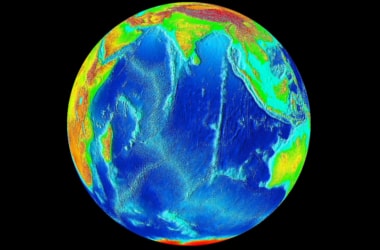
India’s exclusive rights to explore polymetallic nodules from seabed in Central Indian Ocean Basin (CIOB) have been extended by five years.
These rights are over 75000 sq. km of area in international waters allocated by International Seabed Authority for developmental activities for polymetallic nodules.
The estimated polymetallic nodule resource potential is 380 million tonnes, containing 4.7 million tonnes of nickel.
They also contain 4.29 million tonnes of copper and 0.55 million tonnes of cobalt and 92.59 million tonnes of manganese.
This has been approved unanimously in the 23rd session of International Seabed Authority (ISA) concluded on August 18, 2017 at Kingston, Jamaica.
India is the first country to have received the status of a pioneer investor in 1987.
It was allocated an exclusive area in Central Indian Ocean Basin by United Nations (UN) for exploration and utilization of nodules.
India is one among the top 8-countries/ contractors and is implementing a long-term programme on exploration and utilization of Polymetallic Nodules through Ministry of Earth Sciences.India’s
This includes survey and exploration, environmental studies, technology development in mining and extractive metallurgy, in which significant contributions have been made.
While, the extraction of metals from the polymetallic nodules lying at the deep ocean floor is not yet found to be economically viable at this stage.
This is an area of about 7860 square km has been identified in the CIOB for the First Generation Mine Site on the basis of detailed surveys and analysis.
Environmental studies for mining of deep-sea polymetallic nodules were also carried out to evaluate the possible impacts of mining on deep-sea environment.
A Remotely Operable Submersible (ROSUB 6000), capable of operating at 6000 m water depth was also developed and tested successfully at a depth of 5289 m.
A remotely operable in-situ soil testing equipment was also developed for obtaining detailed geotechnical properties of the mining area at CIOB and tested successfully at 5462 m water depth.
A mining system is under development which has been tested for 500m water depth.
Metallurgical process routes for extracting copper, nickel and cobalt from polymetallic nodules have been developed and tested in a demonstration pilot plant.
This was set up on semi-continuous basis at Hindustan Zinc Limited, Udaipur with a capacity to process 500 kg nodules per day.
ISA: Know More- International Seabed Authority (ISA) is a UN body set up to regulate the exploration and exploitation of marine non-living resources of oceans in international waters.
- India actively contributes to the work of International Seabed Authority. Last year, India was re-elected as a member of Council of ISA.
- India’s nominees on Legal and Technical Commission and Finance Committee of the ISA were also elected last year.